Around a year has passed since those most recent floods, and this summer has brought good news. The problem isn't solved yet, but progress is being made and things are improving in Junction Hollow.
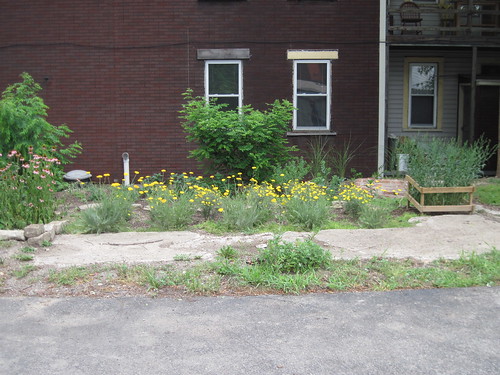
Above: Rain garden in Junction Hollow, photo by Laura Shaffalo
Laura Shaffalo recently sent me these pictures of Junction Hollow. They show work being done to improve drainage and reduce the chance of sewage overflow in the neighborhood. In conjunction with work being done higher in the watershed, including restoration of the Panther Hollow watershed that drains into Junction Hollow, this work should help to reduce the risk of sewage floods in Junction Hollow and also improve water quality downstream in the Ohio and Monongahela rivers.
Rocky swales have been created to slow down and infiltrate water running off of the bridge above:
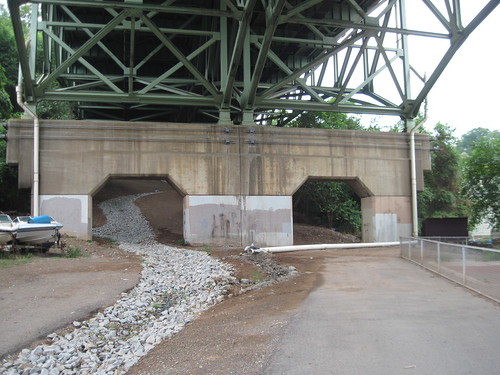
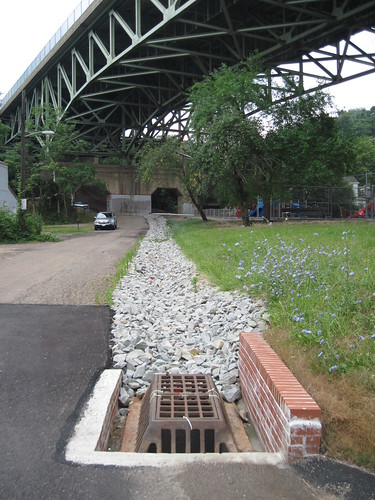
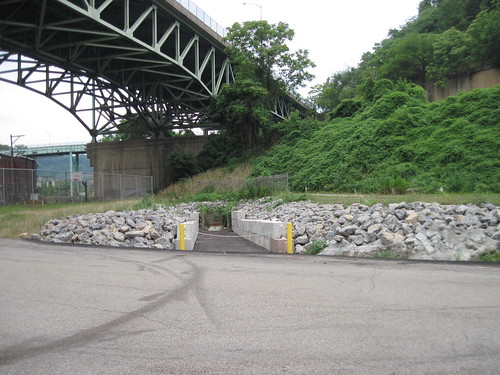
One of the drainpipes from the bridge is bringing in garbage and rapid runoff, but at least it is slowing down here and presumably another swale will be added here:
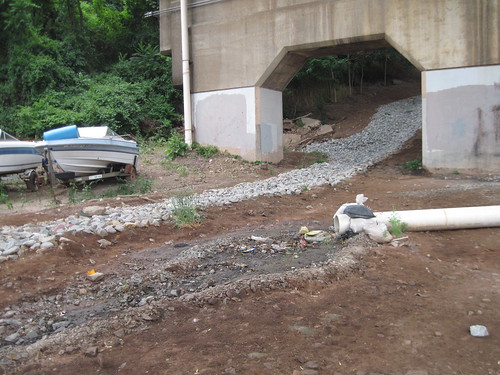
This drainpipe was repaired:
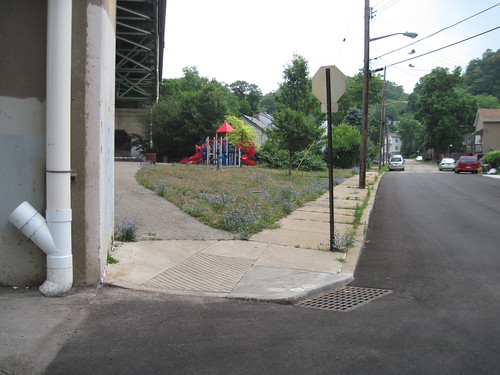
This is quite an improvement from when the drainpipe was mixing with raw sewage and added to the floodwaters that were surging near a playground, as seen in this video I posted in last year's post.
Laura also sent a picture of pervious sidewalk that was installed around the Union Hall of Engineers:
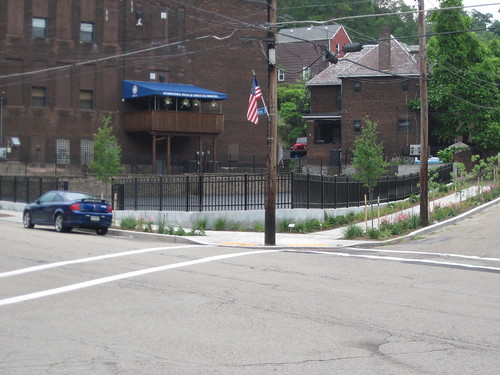
Efforts like these are great news and are especially important in light of the fact that more conventional 'grey water' solutions are extremely expensive and often unaffordable.
I haven't been to Pittsburgh for a while, so I haven't seen the progress being made in other parts of town. If you have any photos or updates, please post them here or send them to naturalist.charlie at gmail dot com and I will post them.
And, on a final note, while googling recent Pittsburgh water news I found this story. Water that soaks into the aquifers doesn't just disappear, but can be used again later!

No comments:
Post a Comment